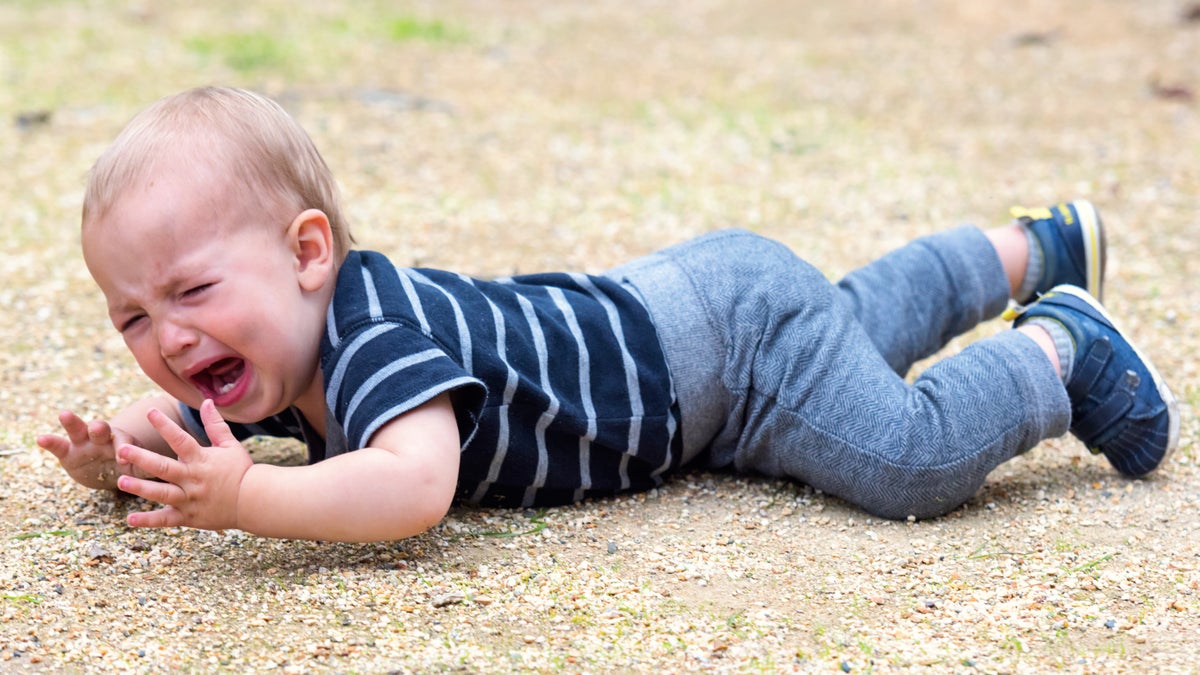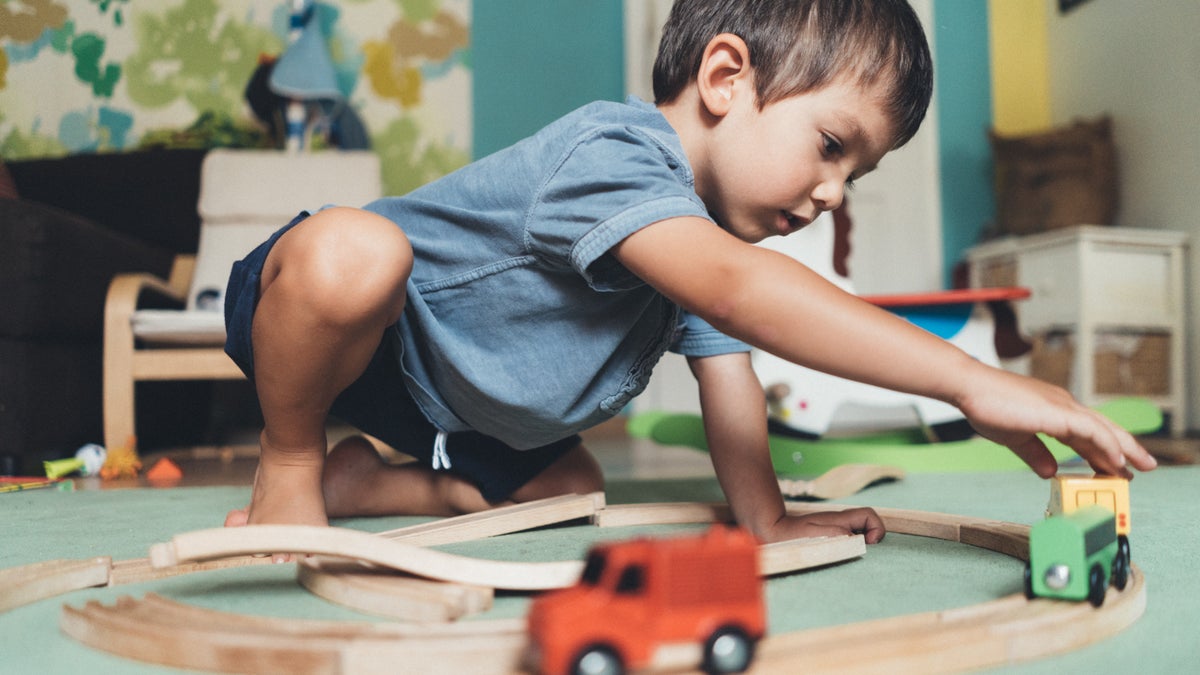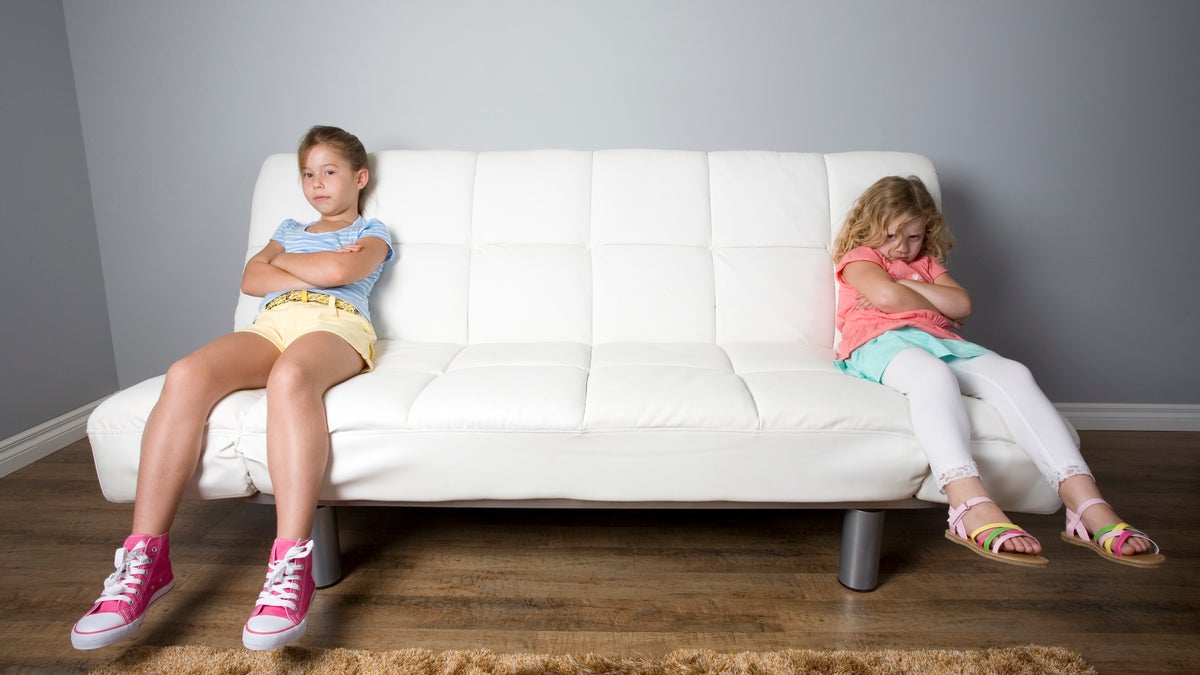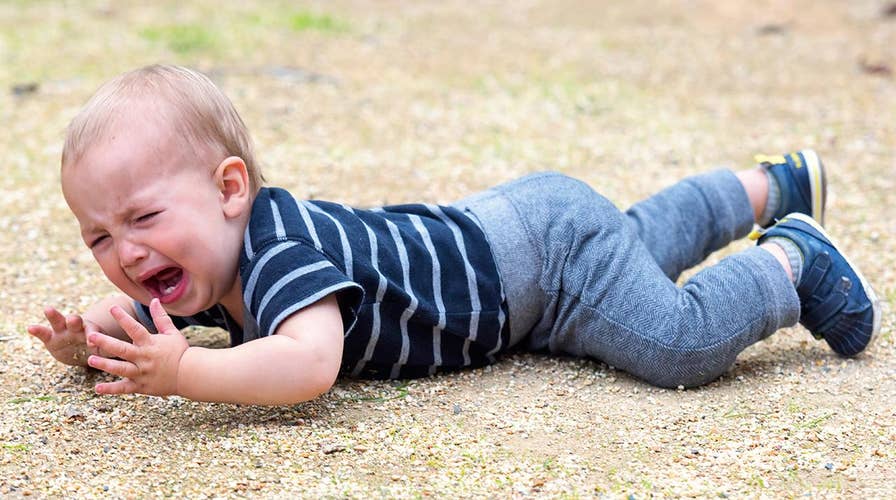How to stop your kid from throwing a temper tantrum
From how to tame a temper tantrum to ways to avoid sibling rivalry, psychologists and child development expert Dr. Gail Gross breaks down the most common and problematic behaviors your kids are driving you crazy with.
Terrible twos or terrible toddlers. When cutesy babbles turn into ‘no’s,’ ‘mine,’ and ‘I don’t want tos,’ it’s no wonder why so many parents end up feeling exhausted and defeated.
Psychologists and child development expert Dr. Gail Gross says the toddler years are usually so taxing on parents because children are just starting to reach for independence.
“This period, called the Terrible Twos, is the first time your child attempts autonomy. Having felt out of control up until now, and dependent on others, your child, for the first time, is driven to control,” Gross wrote in her book “How to Build your Baby’s Brain.”
Fox News asked parenting communities online what some of their biggest toddler behavior questions were, and here's what we found.
What's the best approach to tame your child's tantrum?
Temper tantrums are a way young children let out strong emotions before they are able to express them in socially acceptable ways, according to Johns Hopkins Medicine. Whether your child is stomping, screaming, or throwing himself to the ground, these anger-filled outbursts are all a normal part of childhood development.
“The central theme connecting temper tantrums is your toddler’s desire to ‘do it himself,’ to get his way and resist control,” Gross told Fox News.

As much as you may try to appease your child, there is no sure way to avoid or prevent a temper tantrum (although they do tend to arise more when your child is tired or hungry). When the inevitable fit takes place, Gross recommends changing their environment.
“Distract them and move them from the object or whatever they do want that that they're not getting, or the attention they're not getting,” Gross explained.
Time-outs may also work during a difficult tantrum, Gross said, as long as you don’t isolate them.
“When you're doing a time out, if you leave your child and walk out of the room or put them in their crib and walk out of the room, then what will happen? They cry. They may have an escalation of temper because they feel isolated from you,” Gross said. “Never isolate them, it has a terrible effect mentally and actually in the brain. Children that are consistently deprived or are put into isolating situations, really overproduce cortisol. And what does cortisol do? If it's consistent, it bathes the brain and changes brain architecture and impulse control.”
TODDLER SEPARATED FROM TWIN FOR FIRST TIME AFTER RARE CANCER DIAGNOSIS: 'IT'S BEEN REALLY HARD'
A Harvard University report stated that in animal and human studies “long-term elevations in cortisol levels can alter the function of a number of neural systems, suppress the immune response, and even change the architecture of regions in the brain that are essential for learning and memory.”
When is the appropriate time to start worrying if your toddler hasn't started talking?
Although most experts would agree that every child is different and develops at his or her own pace, there are specific milestones for speech and language development. According to the Mayo Clinic, a 2-year-old should speak about 50 or more words and use simple phrases, such as "more milk." To determine if your child actually has a delay, pediatricians typically start with the question of whether or not your child can hear and then will ask about the rest of the child’s development, like a delay in receptive language, visual skills like pointing and adaptive skills like using a spoon.
“We have to read the charts and see the general area of development and what to expect. And then if we're concerned, we remediate. We go to a professional who can help us. And then we go to a speech therapist who can help us,” Gross said. “There is a time and place for checking things out. But if we know our child, we can kind of not be worried until we have to be worried.”

Looking into neurological disorders, like being on the autism spectrum, is another issue to rule out and then, lastly, seeing if anything else environmentally is interrupting their speech and language. In a New York Times piece, James Coplan, a neurodevelopmental pediatrician, said another question to consider is whether or not anyone is talking to the child.
“Is something getting in the way maybe an exceptionally chaotic household, maybe a severely depressed parent? Speech and language development requires stimulation,” Coplan told the outlet.
How can you prevent sibling rivalry in young children?
Sibling rivalry can be exasperated by gender role if children are born too close together, Gross said. She believes a two-year difference is too close and that three years is really a much better spacing for kids because at three years old, a child is seeking more freedom and independence and may not mind another little person sitting on mom or dad's knee. When a new baby joins the family, Gross said it’s important to always act fair and never ask them to share with each other.
“When you ask them to share with each other, you're discounting their real feelings, ‘This is my toy, I don't want to give this to my brother.’ So suddenly they feel that you may like their new brother more than you like them, or that you're taking away their power, their sense of control and they already feel out of control because you brought them a new little person they're trying to adjust to,” Gross explained.
BUTTON BATTERY BURNS TODDLER'S ESOPHAGUS AFTER HE ACCIDENTALLY SWALLOWED IT, REPORT SAYS
Discounting their feelings or making one child feel like you prefer one sibling over another could lead to more temper tantrums or regressive behaviors like wetting their bed, sucking their thumb, pulling out their hair or biting their nails.
If you want your kids to be able to share well together, make them think it’s their idea, Gross said.
“We tell them, ‘If you want to play with your brother's toy then you may have to let your brother play with your toy,’ and this is how they learn how to share with their own control. So now it's their idea,” Gross said.

Comparing your children is also a big no-no. According to Gross you should never compare them at the dinner table if one of them is eating well and the other isn’t and if one child hurts his knee and begins to cry, never say something like, ‘Look at your sister, she never cries when she hurts herself, look what a big girl she is.'
CLICK HERE TO GET THE FOX NEWS APP
“Instead, you say, of course you're going to cry. You've hurt your knee. If I fell down and hurt my knee, I’d cry too.’ You're taking his feelings into account rather than discounting,” Gross said. “When you take them into account, he relaxes. He doesn't have to have a temper tantrum or cry because you see him and you're saying to him, ‘I get it. I see what happened.’ This is how we help our children develop good self-esteem. And this is how we tamp down sibling rivalry.”









































